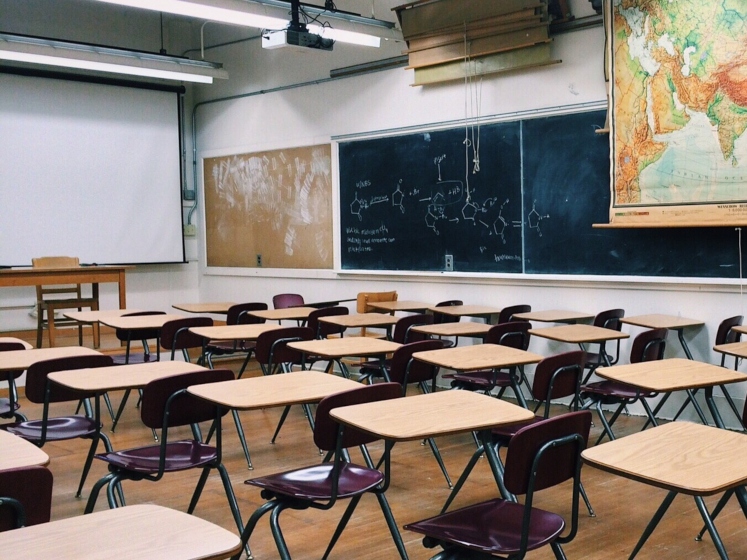
The educational damage wrought by the COVID-19 pandemic will impact on children well into the 2030s, with generations of pupils set for the biggest declines in GCSE results for decades.
These are the devastating conclusions of a major new study from LSE, the University of Exeter and the University of Strathclyde. The report predicts that less than four in ten pupils in England in 2030 will achieve a grade 5 or above in English and Mathematics GCSEs – lower than the 45.3 per cent of pupils who achieved this benchmark in 2022/23.
The research, funded by the Nuffield Foundation, is the first to chart how school closures during COVID-19 hindered children’s socio-emotional and cognitive skills at age 5, 11, and 14, and predict how these will impact on future GCSE prospects and later life outcomes.
Socio-emotional skills include the ability to engage in positive social interactions, regulate emotions and maintain attention. Cognitive skills are measured by how well children perform in academic tests, reflecting maths, reading and writing skills.
The research finds that socio-emotional skills are just as important as cognitive skills for young people’s GCSE results. For example, 20 per cent of the best performing pupils in cognitive tests at age 14 but who had average socio-emotional skills fail to go on to attain five good GCSEs including English and Maths. Teenagers with strong socio-emotional skills were much more likely to achieve basic GCSEs.
A gender divide in the importance of different skills emerges in the teenage years. For boys, cognitive skills at age 14 are twice as important as socio-emotional skills in determining future GCSE prospects; for girls the opposite is true, with socio-emotional skills 50 per cent more impactful than cognitive skills.
The analysis uses the latest econometric techniques to develop a model of skill formation, based on just under 19,000 pupils in the Millennium Cohort Study. This was applied to later pupil cohorts to predict how GCSE results will be impacted by disruption from school closures during the pandemic.
Alongside an overall fall in GCSE results, the model points to a significant widening in socio-economic inequalities in GCSE results. The researchers use these results to estimate that the UK’s relative income mobility levels will decline by 12-15 per cent for generations of pupils leaving school over the next decade, a significant drop by international standards.
An international review as part of the work concludes that COVID-19 amplified long-term persistent education gaps across a range of OECD countries including the UK. Compared with most other nations, England’s pandemic response was heavily focused on academic catch-up with less emphasis on socio-emotional skills, extracurricular support, and wellbeing.
The report “A generation at risk: Rebalancing education in the post-pandemic era” was produced by Lee Elliot Major, Professor of Social Mobility at the University of Exeter; Andy Eyles; Professor Steve Machin from the Centre for Economic Performance (CEP) at the London School of Economics; and Esme Lillywhite from the University of Strathclyde. It proposes several low-cost policies with the potential to improve children’s outcomes, including:
- A national programme of trained undergraduate student tutors helping to boost the foundational skills of pupils, and enabling undergraduates to consider a career in teaching.
- Rebalancing Ofsted inspections to explicitly focus on how schools are performing for pupils from under-resourced backgrounds and credit schools excelling when serving under-resourced communities.
- Rebalancing the school calendar to improve teacher wellbeing, prevent holiday hunger, improve pupil prospects and help parents with child-care during the long summer break.
Professor of Social Mobility at the University of Exeter and LSE CEP Associate Professor Elliot Major said: “Without a raft of equalising policies, the damaging legacy from COVID-19 school closures will be felt by generations of pupils well into the next decade. Our review shows that COVID amplified long-term persistent education gaps in England and other countries.
“The policies we propose would rebalance the school system so that it supports all children irrespective of their backgrounds. A particular worry is a group of pupils who are falling significantly behind, likely to be absent from the classroom and to leave school without the basic skills needed to function and flourish in life. The decline in social mobility levels threatens to cast a long shadow over our society.”
LSE CEP Associate Andy Eyles added: “To our knowledge, this is the first time this type of analysis has been used in this way to assess the consequences of the pandemic in England. Our results suggest that to improve child outcomes, much greater emphasis is needed in schools on activities that improve both socio-emotional and cognitive skills.”
Esme Lillywhite from the University of Strathclyde and a research assistant at LSE CEP said: “Compared with most other nations, England’s pandemic response was heavily focused on academic catch-up with less emphasis on socio-emotional skills, extracurricular support, and wellbeing. Much more could be gained by closer international collaboration to learn what approaches have been promising elsewhere.”
Dr Emily Tanner, Programme Head at the Nuffield Foundation said: "The mounting evidence on the long-term impact of learning loss on young people's development shows how important it is for students to develop socio-emotional skills alongside academic learning. The insights from this report on timing and gender provide a useful basis for targeting effective interventions."